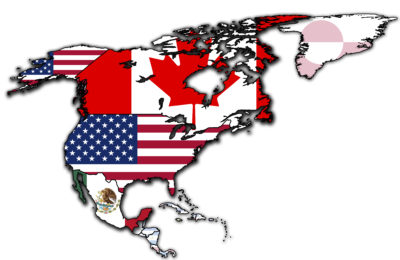By Christian A. Haro Sevares, Attorney with TGDM, S.C.1
charo@tgdm.com
Four rounds of negotiations have passed between the representatives of Mexico, United States and Canada. Hard to believe, but nothing has been achieved thus far among the countries. The Mexican Government truly prefers the possibility of a cancellation instead of agreeing to terms and/or conditions that may affect the country for at least the next 30 years. Our argument is that NAFTA cannot be renegotiated in the proper way by mixing economics and politics. The truth is that NAFTA 2.0 is closer to being withdrawn than modernized.
1. What’s happening?
Since President Trump announced his intentions to abandon NAFTA, a lot of things happened that impacted Mexico. For instance, the exchange rates between the Mexican peso and the U.S. dollar have been up and down like crazy, because actual investors are preoccupied with NAFTA’s final resolution. In particular, we could interpret the threat of the U.S. potentially walking away from NAFTA as a form of pressure to achieve its demands. Moreover, bear in mind that the personal relationship between President Trump and President Pena Nieto is bizarre in some political way. Now, it’s common to see messages in Twitter between governments attacking each other, and none of which are helping the current negotiations of NAFTA.
Actually, we have an idea that could clarify the status of negotiations. If we remember accurately, Trump won his Presidency by taking key states like Ohio, Michigan, and Wisconsin. Among other aspects, the people of those states voted for Mr. Trump because they believed the “bad story” about NAFTA, and other “terrible” foreign trade agreements signed by his predecessors. This translated to the belief that many American jobs were lost. In saying so, President Trump is using the current political climate to challenge an economic policy. Moreover, the U.S. President is negotiating NAFTA utilizing the principle “America first”. This approach complicates any possible renegotiation for Canada and Mexico who cannot put aside their own sovereignty and principles. Of course, one is allowed to have principles in the forefront, but in the negotiation of a foreign trade agreement, it’s very difficult to come to an agreement.
2. The Mexican Perspective
In recent days, the Ministry of Economy and Foreign Affairs of Mexico declared that Mexico is not going to allow the modernization of NAFTA at any cost. Namely, Mexico will not accept conditions and/or clauses that harm their economy for the next 30 years simply because NAFTA is providing foreign investment and jobs to Mexico. Actually, Mexico is prepared to increase economic relations with China, South Korea and other countries in Europe.
The Mexican chips to play are good. Mexico has more than 30 years in the manufacturing industry providing different processes and services to foreign countries. Also, Mexico has a strategic position in the world to deliver said products and services to countries like the U.S. Finally, from our perspective, Mexico is increasing their supplies.
3. What’s next?
We began the fifth round of negotiations in Mexico City with low expectations. If we are correct in our assumption, the U.S. President will not concede any further than what has transpired to date. Mexico is playing its hand, as waiting for the final decision would be, in our opinion very passive. Canada is in the middle and not taking a side. The first version of NAFTA was signed in 1994 and took years to achieve its current version, which makes it seem unrealistic that a newer version can be achieved in months. So, in conclusion. we cannot talk about the renegotiation of NAFTA like a real negotiation as it seems that NAFTA 2.0 will depend only on the will or mood of one country. Only time will tell.























